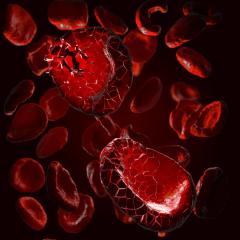
Expert Perspectives on the Design of the ADVANCE Trial
Panelists discuss how the ADVANCE trial’s inclusive design and MRD-based end points make it a model for future NDMM research.
Episodes in this series

Panelists discuss how the ADVANCE trial’s design reflects a balance between rigorous scientific evaluation and real-world relevance. They emphasize that including both transplant-eligible and -ineligible patients broadens generalizability, offering insights into how modern therapy can serve diverse populations. They note that demographic analyses help interpret response consistency across subgroups, suggesting that benefit extends regardless of age or baseline risk status. The panel appreciates the study’s minimal residual disease (MRD)–centric end points as a forward-looking measure of efficacy, potentially redefining how success in newly diagnosed multiple myeloma (NDMM) is measured. They agree that the trial could set a precedent for integrating patient-reported outcomes and long-term tolerability into future studies.
Newsletter
Stay up to date on recent advances in the multidisciplinary approach to cancer.




































